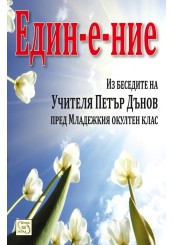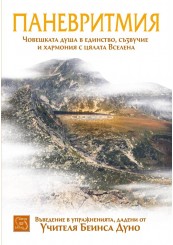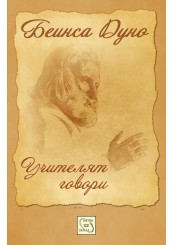Peter Deunov

Peter Deunov (1864–1944), also known by his spiritual name Beinsa Douno, and often called the Master by his followers, was a Bulgarian philosopher and spiritual teacher who developed a form of Esoteric Christianity. He is widely known in Bulgaria as a founder of a religious-philosophical doctrine, which he describes as "esoteric Christianity" and occultism. The doctrine is considered by the Bulgarian state to be religious and registered by the Directorate of Religious Affairs as a separate religion.
Deunov and his followers and are known as the Universal White Brotherhood.
Peter Deunov was born in the village of Hadardja (now Nikolaevka in Suvorovo Municipality) near Varna, Bulgaria on July 11, 1864, the third child of Konstantin Dunovsky and Dobra Atanasova Georgieva. His father was the first Bulgarian teacher in the region before becoming a Bulgarian Orthodox priest. He was one of the first to present the liturgy in Bulgarian, the language of the local people, rather than the traditional sacred language of Greek.
Deunov attended secondary school in Varna and the American Methodist School of Theology and Science in Svishtov, from which he graduated in 1886. He worked as a primary school teacher for a year before leaving for the United States, where he studied theology at Drew Theological Seminary in Madison, New Jersey, from 1888 to May 1892. After graduating from Drew, in the fall of 1892 he enrolled in the Boston University School of Theology and obtained his degree in June 1893 with a thesis on "The Migration of the Germanic Tribes and Their Christianisation". He was a regular student at the School of Medicine of Boston University for a year, before returning to Bulgaria in 1895.
In Bulgaria Deunov was offered the position of a Methodist pastor in the city of Yambol. This offer was withdrawn after he stipulated he would only serve without remuneration. In 1896 he published Science and Education, in which he analyzed the development of mankind into a new culture, which he thought was bound to take place during the forthcoming century. After the turn of the century, Deunov began to travel throughout Bulgaria for several years, giving talks and undertaking phrenological research. He met with a wide circle of people. Among them were his first three disciples, who had belonged to different branches of Christianity – Todor Stoimenov (Eastern Orthodox), Dr. Mirkovich (Catholic) and Penyu Kirov (Protestant). After a long correspondence, all of them met in Varna during 19–23 July 1900. It is considered the first annual convention of what later became a spiritual community that lasted until the end of Deunov's life. Deunov eventually settled in Sofia, the capital of Bulgaria, and began giving lectures.
In 1914 he gave his first public lecture, Behold, the Man! (Ecce Homo in Latin), published later in the series Power and Life. Deunov began to give regular Sunday lectures which were based on the elaboration and explanation of a Biblical passage.
In 1921 the community Izgrev (Sunrise) was established. A site at what were then the outskirts of Sofia, it was the gathering place in the mornings for Deunov and his disciples. Many followers started building nearby and the place eventually became the center of a large spiritual community. Deunov gave lectures in the newly constructed Lecture Hall. In 1922 he initiated two new streams of specialized lectures in addition to the Sunday lectures, and from 1930 began delivering “morning talks” on Sunday mornings before dawn. The themes of the different lecture streams were wide-ranging and encompassed, among others: religion, music, geometry, astrology, philosophy and esoteric science. Overall, Deunov gave approximately 3700 lectures in the three decades between 1914 and 1944. His thoughts were also recorded in talks, private conversations, and early letters.
In 1932, he developed Paneurhythmy exercises: a sequence of exercises performed to music, to achieve inner balance and harmonization. He died in 1944, aged 80.




